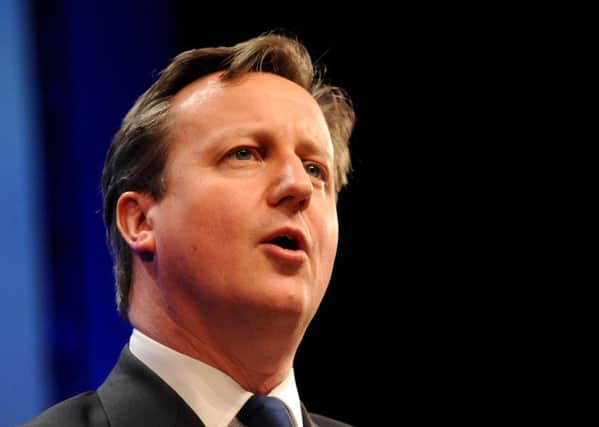David Cameron warned over EU reform demands


The almost instant from the European Commission came as London Mayor Boris Johnson declared there “will be blood on the floor” with the negotiations as Mr Cameron published his letter with his four key objectives to European Council president Donald Tusk.
Outlining his key demands in a speech at Chatham House in London, the Prime Minister insisted that fellow leaders needed to agree to a ban on EU migrants receiving benefits for four years to help tackle the “abuse” of free movement in Europe.
Advertisement
Hide AdAdvertisement
Hide AdThis measure is seen as his most difficult demand and is opposed by Eastern European countries and France but backed by the Germans.
Mr Cameron said: “I understand how difficult some of these welfare issues are for some member states, and I’m open to different ways of dealing with this issue.
“But we do need to secure arrangements that deliver on objectives set out in the Conservative manifesto to control migration from the European Union.”
He claimed that 40 per cent of recent European Economic Area migrants received an average of around £6,000 a year of in-work benefits.
But Martin Schulz, the leader of the European Parliament, questioned the legality of the demand.
He said: “I have strong doubts about the legality of the four-year ban on access to welfare benefits for EU citizens but wait to see what specific ideas the British government will come up with in the end in this particular area.”
Mr Cameron also wants the EU to have competitiveness “built into its DNA”, protections for non-eurozone members in the single market and the UK to be allowed to opt out of the goal of “ever closer union.”
However, the Prime Minister also used his speech to tell UK voters that the decision in a referendum, which must take place by the end of 2017, is “in your hands” and said it was the “most important decision” voters will ever have to make.
Advertisement
Hide AdAdvertisement
Hide AdBut he also warned that there is “no land of milk and honey” outside the EU but said that if his demands are not met he may campaign for an exit.
After the speech Mr Tusk acknowledged receipt of the letter and said he would begin the formal talks process.
He tweeted: “Next week, I will launch bilateral consultations with Member States as well as EP on topics to be addressed in #UKinEU negotiations.”
The speech failed to convince those in the UK pushing for an EU exit.
Ukip leader Nigel Farage described the demands as “weak” and accused Mr Cameron of “eulogising” about the EU’s single market and foreign policy.
He said the Prime Minister would “come home with a piece of paper” that would only be promises for future treaties.
London Mayor Boris Johnson also warned that Mr Cameron may not be able to achieve even his limited demands.
He said: “I think it’ll be tough. There will be a long period now of quite scratchy negotiations. I think there will come a great sort of juddering moment - there will be blood all over the carpet at some point in Brussels. I don’t know when that will happen but I hope very much that we will get the deal by the end of next year.”
Advertisement
Hide AdAdvertisement
Hide AdGreen MP Caroline Lucas described the demands as “deeply depressing.”
And the SNP said Mr Cameron was pushing the UK “closer to an EU exit” which it believes will not be supported in Scotland and could trigger a second independence referendum.
But Will Straw, the Labour politician who heads Britain Stronger in Europe, said: “Of course Europe isn’t perfect, which is why we need to argue for reform, now, tomorrow and into the future. Britain has a long history of delivering reform in Europe, Prime Ministers from Wilson to Thatcher to Blair have proved that in the past.”
Trade union leaders said they were concerned that Mr Cameron still wants to unravel the social charter and protections of workers’ rights.
TUC General Secretary Frances O’Grady said: “The Prime Minister has gone quiet on rhetorical threats to the paid holidays and family-friendly rights that Europe brings, but we need to see the small print.
“David Cameron must spell out his position on workers’ rights. People are more likely to vote to stay in a Europe that balances benefits for business with strong rights and protections for workers.”